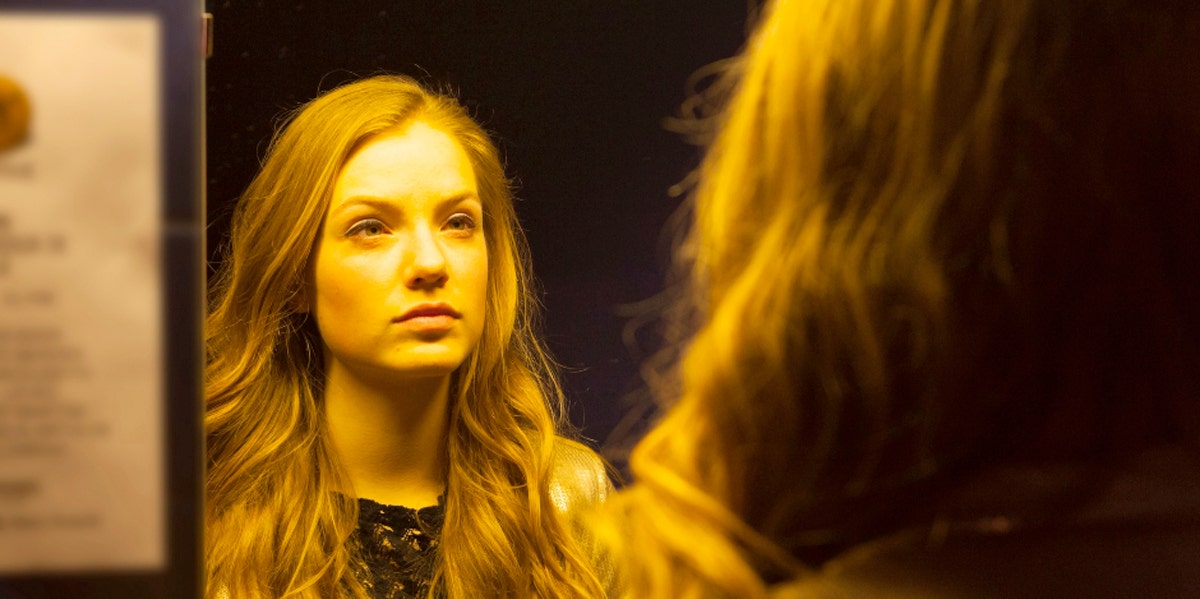I Was Shamed For Being A Hairy Teenage Girl
My feelings about this unfortunate aspect of my DNA are scars of my adolescence.
 Getty Images
Getty Images Adolescence and puberty are awkward years for teenagers to deal with, especially teenage girls, as this is the time when confidence and self-esteem matter the most but body shaming takes precedence.
Every teen feels ashamed of something. While there are plenty of books on how to help your teen deal with adolescence, sometimes, teens go through these awkward stages alone. Myself included.
When I was an adolescent, one of my vocabulary words was "hirsute," which is a sophisticated word for hairy. I was a fuzzy kid, and I remember being mortified when the teacher asked for someone to use the word in a sentence. Surely someone would offer, "Helaina is hirsute."
No one did, thankfully, but the shame I felt that day was a feeling that lasted well into my 20s. My feelings about this unfortunate aspect of my DNA are some of the scars of adolescence.
With the clarity of hindsight, I wasn't as fuzzy as I thought
Looking back at old pictures, I realize that the actual state of the fuzz was not as bad as it felt. Yes, I was hairier than many girls, but how I felt about it amplified the reality.
I felt shame. I wished that I could be like the fair-haired mutants who did not have arm hair, who would not have to style their eyebrows!
Starting that day in class, when a word in a book triggered intense feelings of shame, I understood that my furriness separated me from my peers. It could be something that people could notice and make fun of.
All of us have flaws that make us feel shame. Adolescence is the worst for this reason!
Luckily, I grew up in the 90s when everyone looked a lot less perfect than they do today. I could get away with being a 6.5 on the furriness scale.
Being hairy made me feel out of control. I was different because of it and there was nothing I could do about it then. (Unlike now. Thank you, lasers!)
But when families think shame is motivating, it can make matters worse.
My family didn’t really know how to support and love their little hair farmer. I’ll spare the details, but they did the best they could and all that. We have since found our way through it.
Private rejection, public shame
But my adolescent years were marked by rejection of the person I couldn’t help but be. This added to my own shame.
I was born this way before Lady Gaga told us it was okay to own our fabulousness and our flaws. But as this hair farmer grew up, the shame dissipated.
The fact that I’m putting this out there suggests that I’ve come a long way.
These days, I am the friend my girlfriends call whenever they have a horror story about body hair. I am an authority on hair management.
On these hair 911 calls, we laugh about the absurdity of being female and our various attempts to obliterate our unwanted fuzzies in the name of femininity.
At this point in my life, I refer to this aspect of self-care as grooming. I poke fun at my likeness to an Afghan Hound. I know that there are mutants out there who don’t even travel with tweezers and I have a love for them.
Self-acceptance takes a lifetime
And yet, still today, I work to relate to this part of myself with self-acceptance.
But I share this as a plea to all parents: your kids and teens have some aspect of themselves that they don’t like and that they feel out of control about. If they’re human, they do.
Remember this when you’re dealing with teenagers: If you know the thing that makes it hard to be them, choose sensitivity when dealing with it. Don’t exploit it or wield it when you need a way to "get through to them."
If you can prevent it, don’t add another thing to your teenager's "Things I will learn to love myself through" list.
Helaina Atlabef is an educator and personal and parenting coach. She's the founder of Pique Learning, a program that prepares students with the necessary tools to thrive in an increasingly competitive world.
